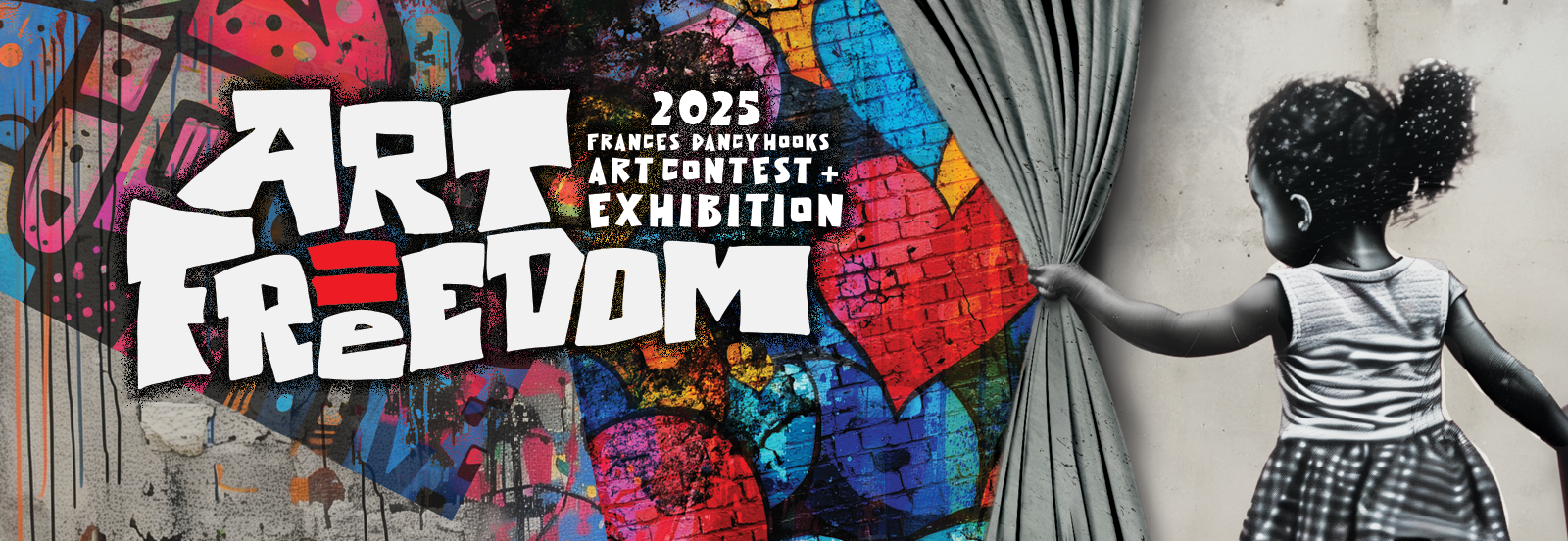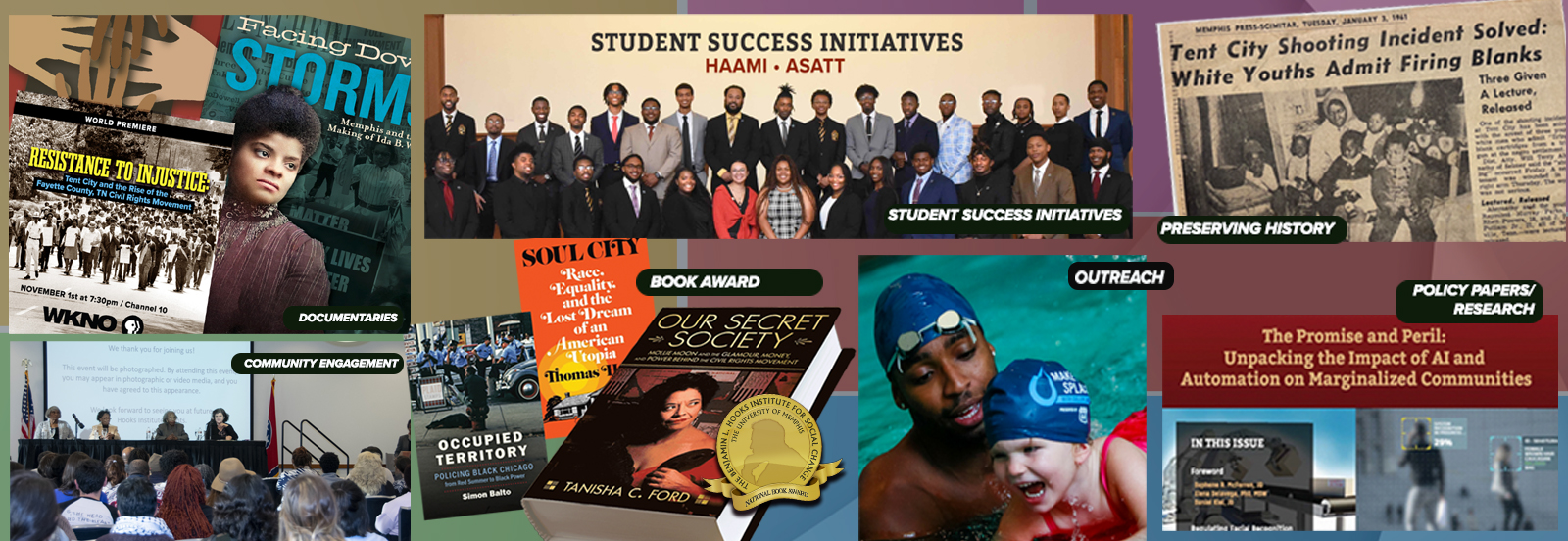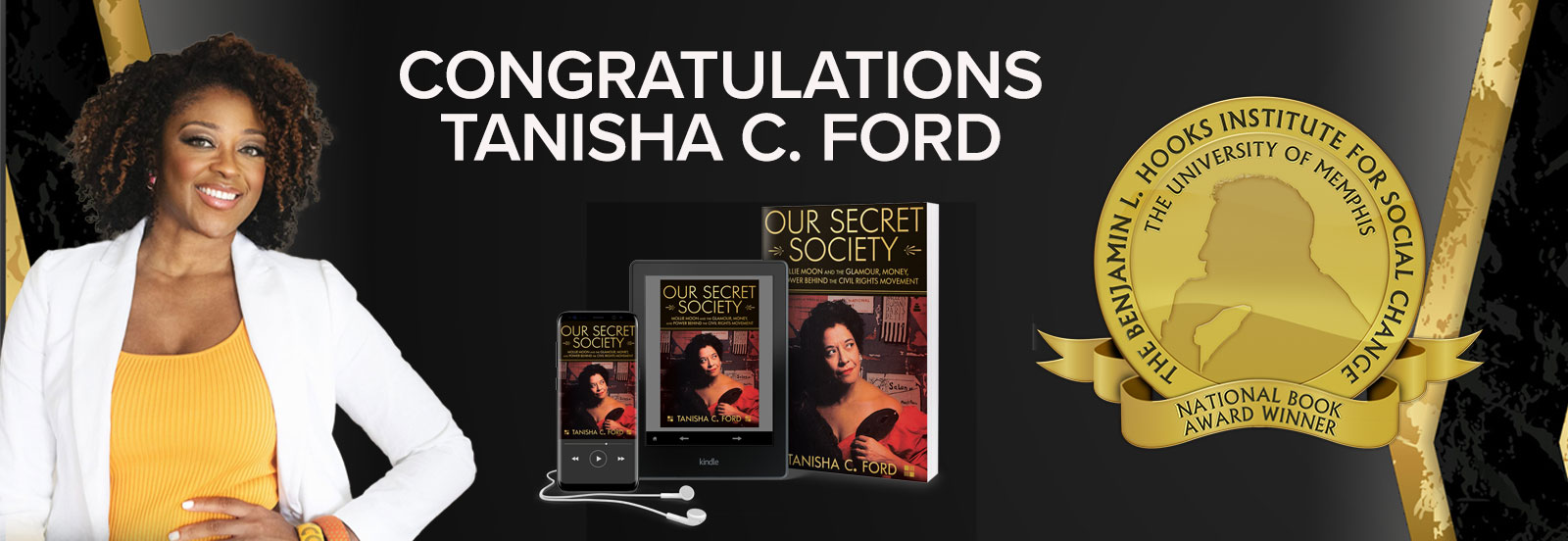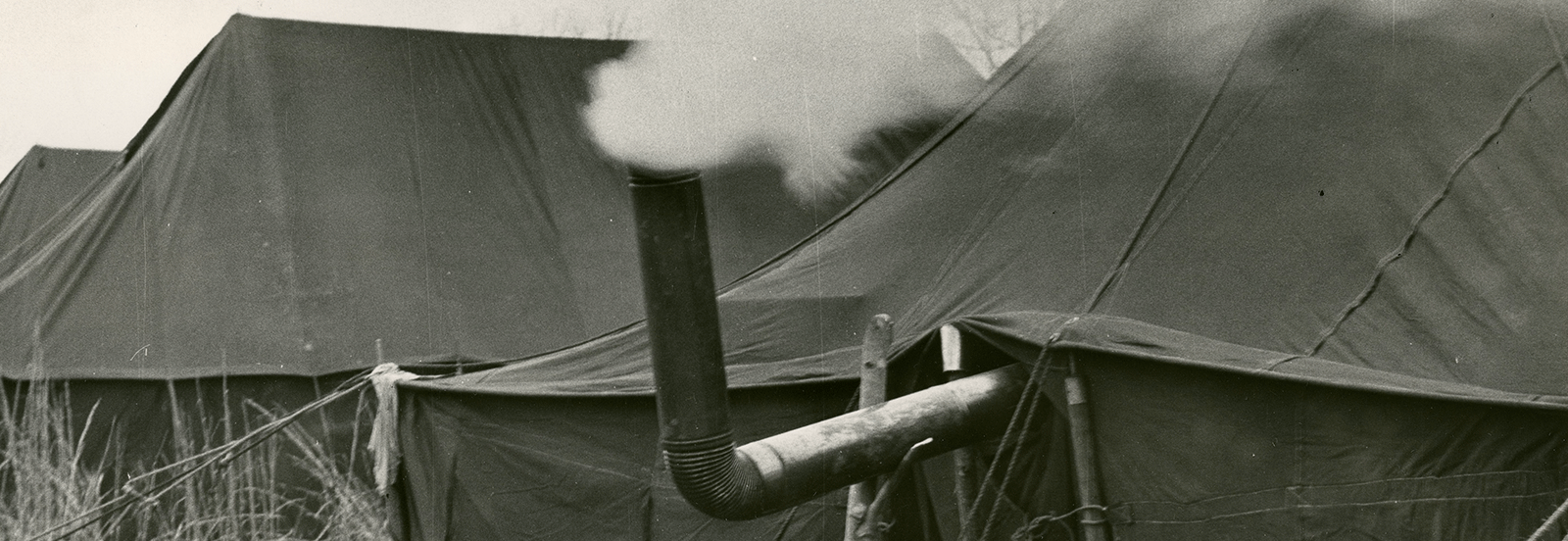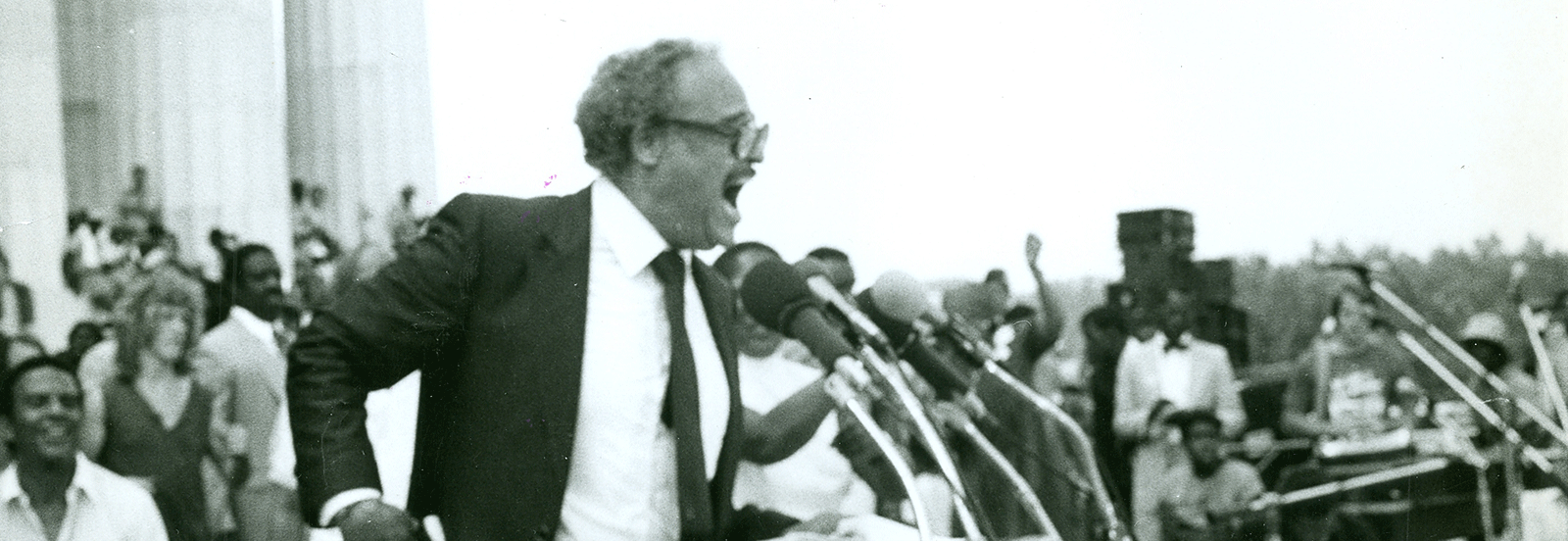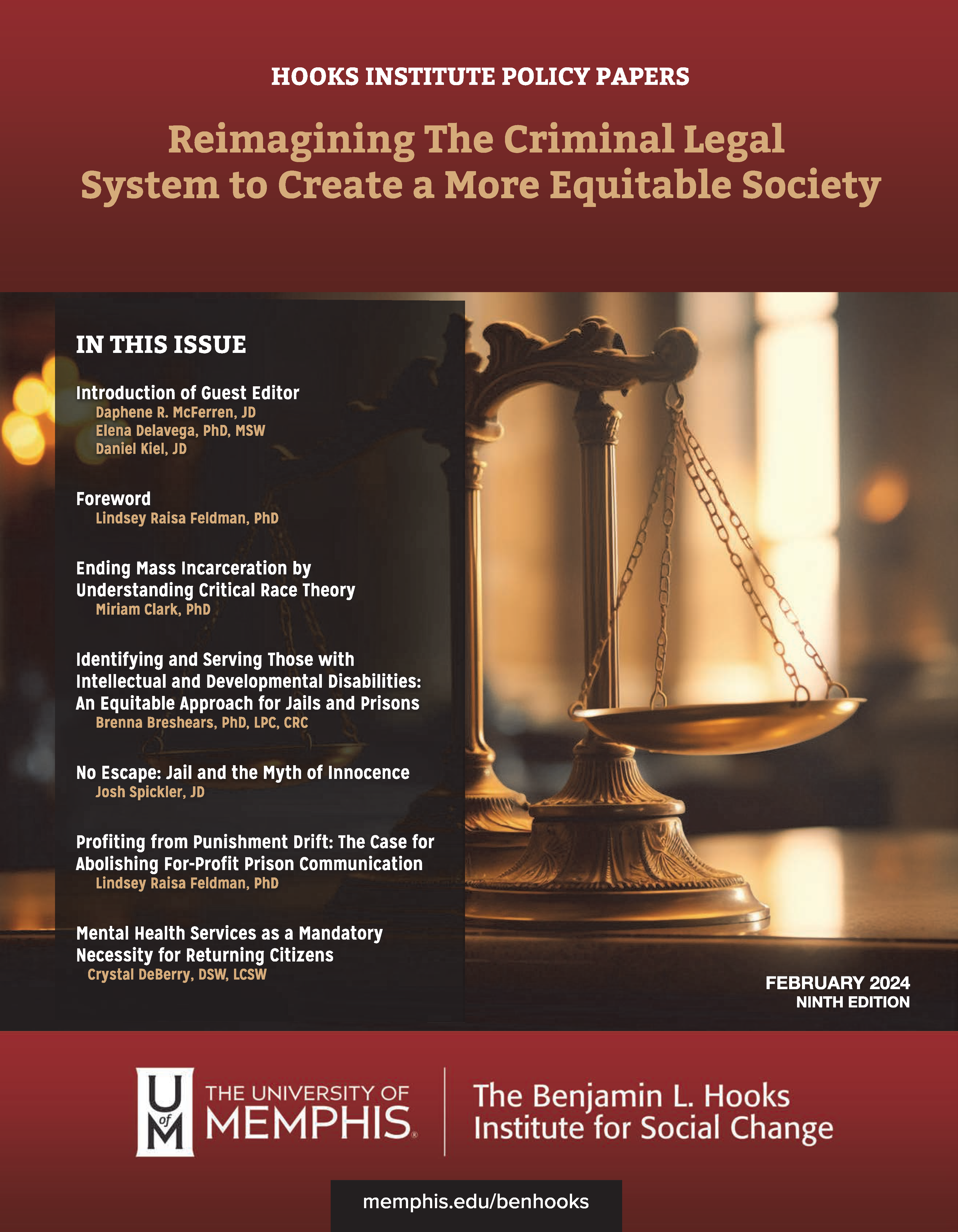Our Mission
Teaching, Studying and Promoting Civil Rights and Social Change
The Benjamin L. Hooks Institute for Social Change advances its mission of teaching, studying, and promoting civil rights and social change primarily through education, research, innovative campaigns, and community engagement.
Who We Are
Hooks Institute: Only Forward
Current Programs and Recent Work
The Frances Dancy Hooks Art Award and Exhibition - Now Accepting Submissions!
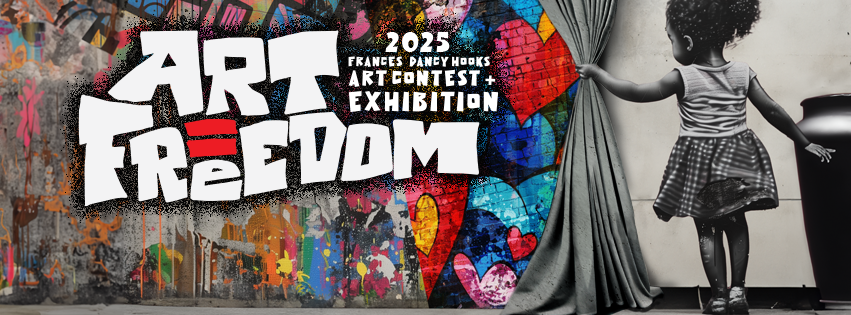
“Art = Freedom” explores creativity as a declaration of ourselves and our empowerment — both personally and collectively.
The act of creation is precious and essential to our humanity. It is a deeply human imperative to be creative: to use one’s hands, voice, soul, body, mind, and spirit to craft and communicate. Because of this, all art has value - be it a humble crayon scribble of a child or a technically sophisticated painting in a museum.
“Art would not be important if life were not important, and life is important.” – James Baldwin
Often, the artistic drive is in response to something one is resisting. At a very basic level, this could simply be boredom, or feeling ‘stuck.’ Creative fashionistas may resist ‘blending in” with the crowd. Others grapple with a more desperate resistance against loneliness, hopelessness, oppression, or erasure. Yet, we, as humans, find empowerment and freedom in art.
This exhibition invites artists whose work serves as a journey of self-discovery, healing, and affirmation, reflecting the human desire to realize one’s fullest potential. At the same time, the exhibition acknowledges that personal empowerment does not exist in isolation; it resonates outward, challenging systems, inspiring communities, and amplifying marginalized voices. “Art = Freedom” showcases how the act of creating art becomes an act of liberation—where identity is reclaimed, trauma is processed, and purpose is declared.
Interested artists should submit works that demonstrate creativity as a space and conduit for empowerment. Submitted works should also be expressions about or challenges to societal expectations or limitations. Artists may submit up to two pieces via the Institute’s digital portal. Artworks may be two- or three- dimensional and can be of any tangible medium. Digital artworks, including AI-generated or augmented pieces, are not accepted at this time. All pieces must weigh under 20 pounds, including any frames or appendages, and cannot be larger than 4ft x 4ft x 4ft. To be eligible, artists must be from the Greater Memphis Area and over the age of 18. There is no submission fee.
Exhibition viewers will be invited not only to witness but to participate in an evolving dialogue: How can personal truth become a tool for collective change? Where does the individual journey meet the social movement?
“The opposite of war isn’t peace. It’s creation.” – Jonathan Larson, “Rent”
In a world marked by division and oppressive challenges, “Art = Empowerment” affirms that to create authentically is to liberate, to resist, and ultimately, to become whole.
The Hooks Institute Policy Papers - Now in the Library of Congress!
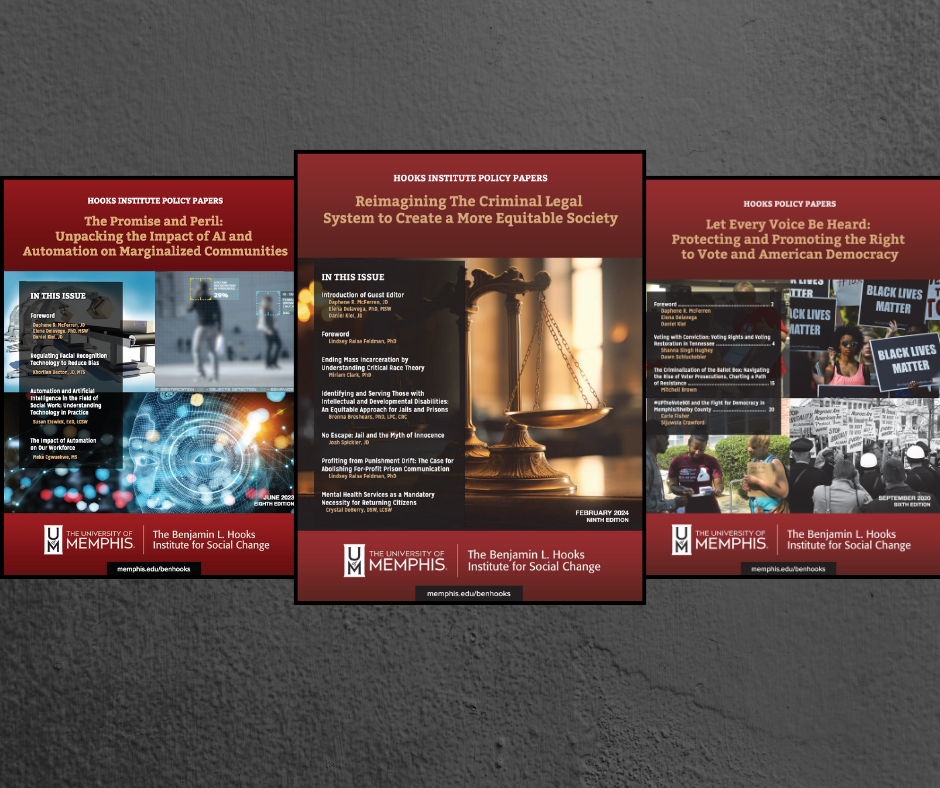
The Benjamin L. Hooks Institute for Social Change is proud to announce that 10 editions of the Hooks Institute’s Policy Papers, from 2014 through 2025, are now housed in the Library of Congress, Washington, DC. The Library of Congress is the largest library in the world and the main research arm of the U.S. Congress. Its collection of films, books, newspapers, manuscripts, and other materials aims to “inform, inspire, and engage” people.
The Hooks Institute Policy Papers cover topics ranging from racial justice, economic equity, criminal legal reform, healthcare disparities, and community well-being to the impact of artificial intelligence on marginalized communities.
The authors of these papers include faculty from the University of Memphis and other universities, as well as policy analysts, practitioners, and activists from Memphis and across the nation. The goal of the Policy Papers is to help shape and inform the community and elected officials on pressing issues that hinder marginalized people’s ability to actualize their potential.
The 11th edition of the Hooks Policy Papers will be published in 2025. Stay tuned!
Reimagining The Criminal Legal System to Create a More Equitable Society
The policy papers in this edition help us begin to answer Ruth Wilson Gilmore’s pertinent question: “Instead of asking whether anyone should be locked up or go free, why don’t we think about why we solve problems by repeating the kind of behavior that brought us the problem in the first place?”
The series is arranged intentionally to engage with the criminal legal system from beginning to end—from its roots, to its policies and ideologies, to its lasting effects. Each paper focuses on one critical issue in the criminal legal system in the United States, and then presents a set of policy recommendations that could lead to real change.
- In the paper titled “Ending Mass Incarceration by Understanding Critical Race Theory,” Dr. Miriam Clark, a Research Associate at the Oregon Social Learning Center, describes why it is imperative we face systemic racism head-on when reimagining the criminal legal system.
- The next policy paper moves us from the systemic causes of mass incarceration to a person’s initial contact with the criminal legal system, that of policing and the courts. Dr. Brenna Breshears, Assistant Professor of Clinical Mental Health Counseling at Eastern Michigan University, writes the paper titled “Identifying and Serving Those with Intellectual and Developmental Disabilities: An Equitable Approach for Jails and Prisons.”
- Moving further into the vast criminal legal system, the next policy paper encourages us to understand and advocate for change regarding jail practices in Shelby County, TN. The criminal legal system is a complex multi-stage process, and jails theoretically exist within this process to detain individuals before they are sentenced. Yet as Josh Spickler, Executive Director of the Memphis nonprofit Just City, describes in “No Escape: Jail and the Myth of Innocence,” the actual role of jail has come to serve as a site of sanctioned violence and harm far beyond its stated purpose.
- Dr. Lindsey Raisa Feldman, Assistant Professor of Anthropology at the University of Memphis, in the paper titled “Profiting from Punishment Drift: The Case for Abolishing For-Profit Prison Communication,” describes the experience of social isolation for families of incarcerated loved ones. Drawing on ethnographic research with women in Memphis, TN, she argues that charging fees for communication between prison and the outside world causes undue harm, and calls to undo the for-profit communication regime currently at work in U.S. prisons. Although there are many features of the U.S. prison system that must be addressed, Dr. Feldman underscores that communication is fundamental to humanity, which is stripped away in this current era of mass incarceration.
- In her paper titled “Mental Health Services as a Mandatory Necessity for Returning Citizens,” Dr. Crystal DeBerry, Owner of DeNovo Clinical Strategies LLC and Founder of the Memphis nonprofit Indomitable Families Affected by Incarceration, describes the importance of mental health resources and support for those impacted by incarceration. She argues that wrap-around mental health services, including counseling, supportive programs, and support for families of incarcerated loved ones, should be a mandatory component of reentry. Just as the first paper makes clear that mass incarceration begins far before any individual person is imprisoned, this paper underscores the fact that the criminal legal system does not simply end when a person is released from detention. The effects of the criminal legal system are vast and long-lasting.
Tennessee General Assembly Honors Fayette County Activists and the University of Memphis Hooks Institute with Resolution
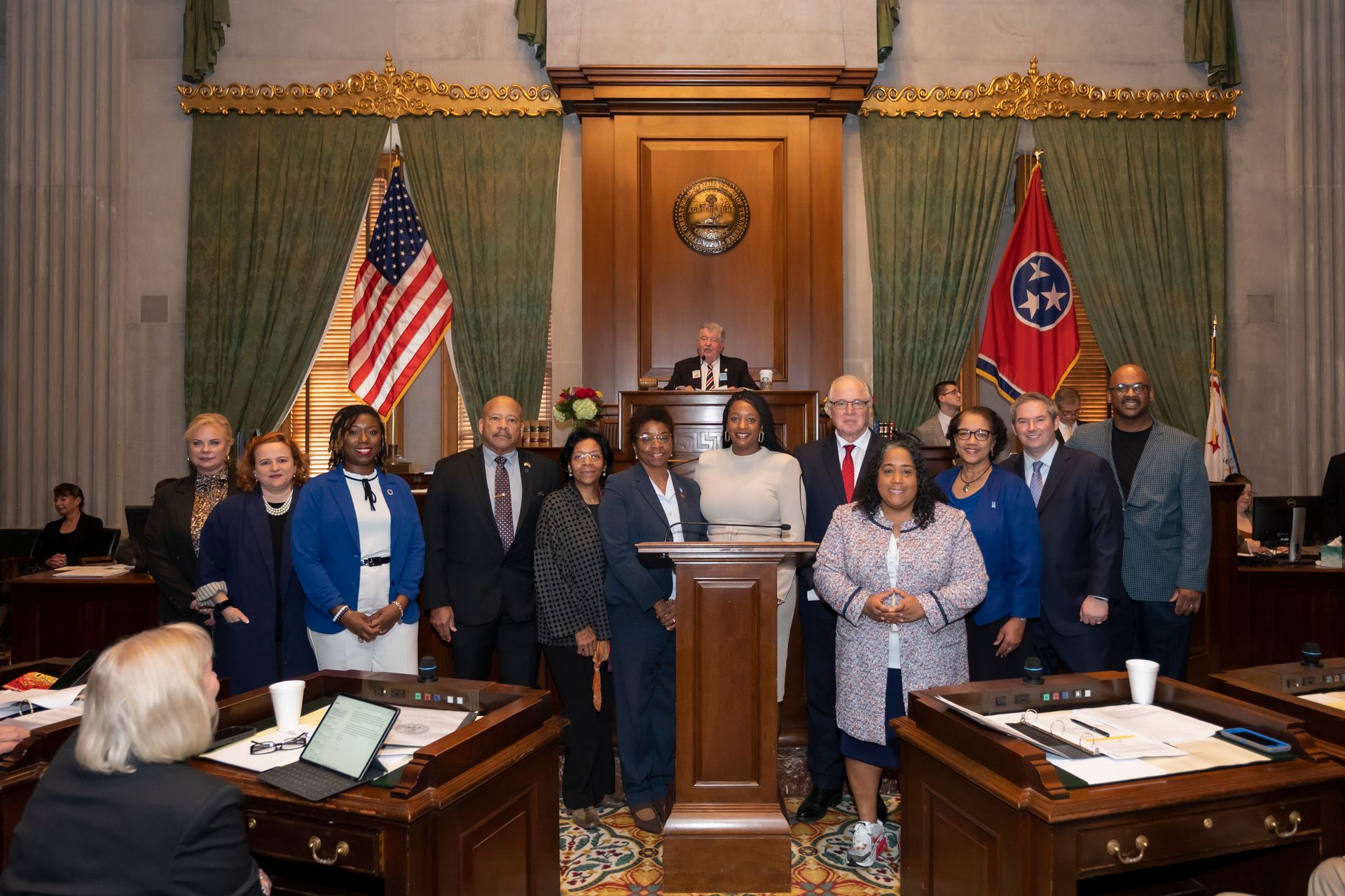
The Tennessee General Assembly recently passed a resolution to honor the activists from the Fayette County Movement and the documentary, website and exhibitions created by the University of Memphis Hooks Institute to preserve and analyze the history of this movement.
Before the General Assembly voted on the resolution, Hooks Institute Executive Director Daphene R. McFerren made brief remarks on the critical importance of preserving this historical work to help ensure equity and social justice for future generations. Her remarks received a standing ovation from the General Assembly.
See What Hooks Has Been Up To
Support Our Work to uplift Memphis and uplift the nation. Make a gift of any amount to the Hooks Institute.

Stay engaged with our efforts to promote an equal and just society!
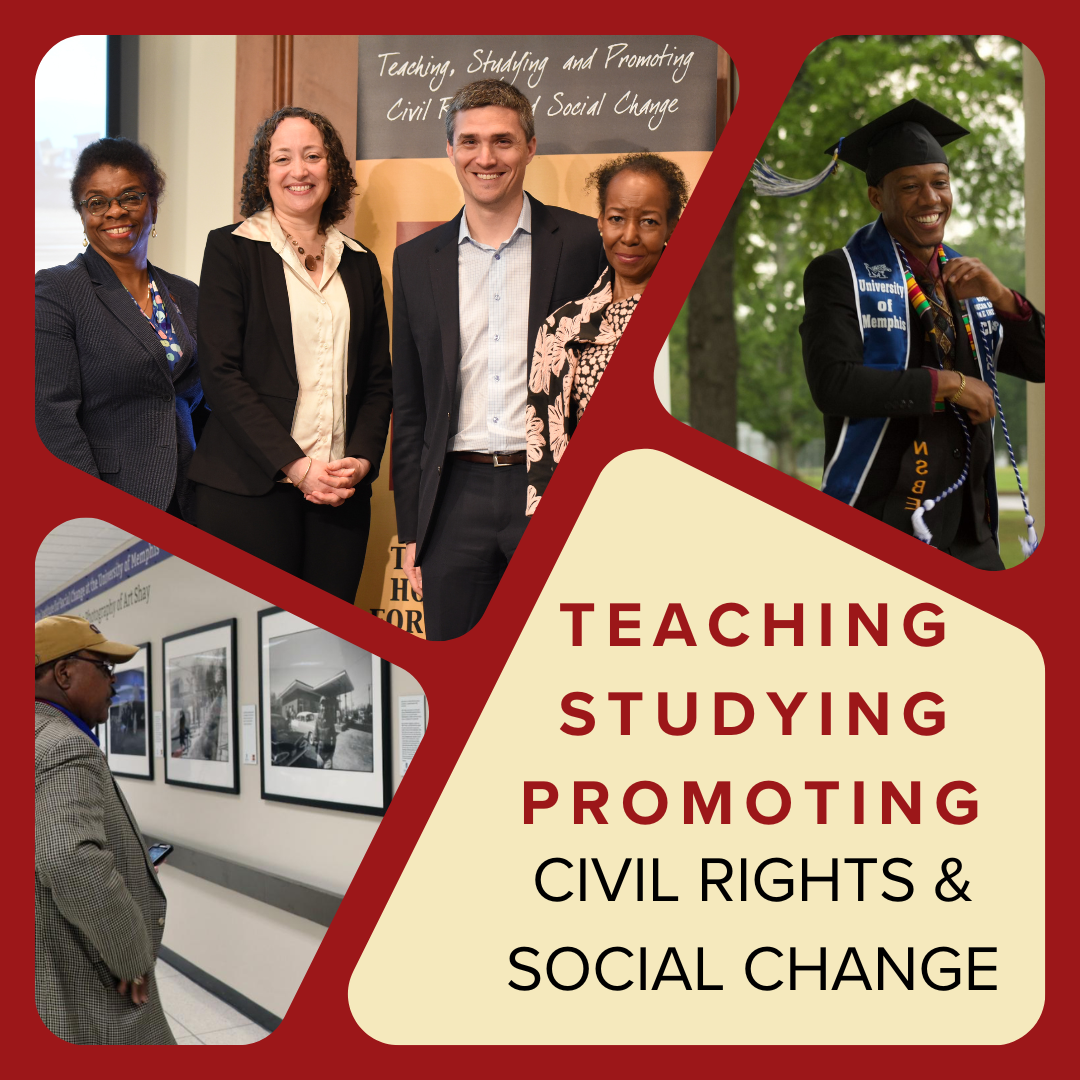
Who We Are
- We transform adults and students through our work including financial literacy training, public lectures, and documentaries on civil rights and social justice.
- We provide ongoing coaching and mentoring to University of Memphis college students to help them achieve successful graduation and professional outcomes.
- We have trained federal and local government personnel on community inequalities by using research from Hooks Institute. This research has also been cited by the media and included in documentary broadcasts.
- We use the collective scholarship of the university to eradicate inequality and to create prosperity in our communities.
- We are the only university Institute in the State of Tennessee with a community engagement, scholarship, and research mission to remove discrimination and inequality in Memphis and beyond.
Who We Serve
- The University of Memphis community, Memphis and Shelby County, the state and the nation. These entities connect to our work through our publications, lecture series, documentaries, and social media.
- Teachers who receive training from Institute staff on civil rights history and use our materials in their classrooms.
- University of Memphis students enrolled in HAAMI or ASATT.
- Faculty at the University of Memphis who receive grants that enable them to fund research focused on societal disparities and their causes.
- Individuals, grassroots leaders, government officials and business leaders who can find valuable research and policy conclusions set forth in the Institute’s Policy Papers.
- Historians who are researching or seeking information about social justice or civil rights especially as it applies to events in the Mid-South.

